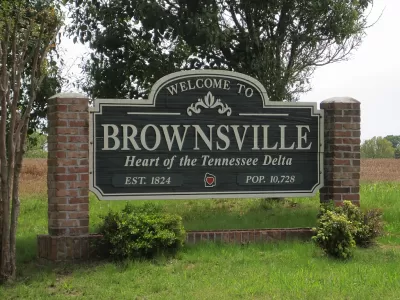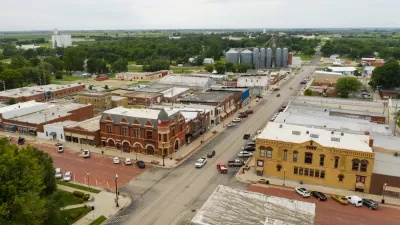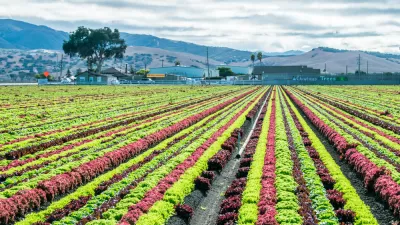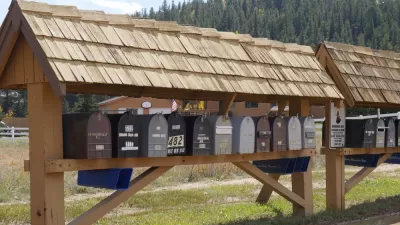A focus on ‘placemaking’ too often obscures or exploits local culture and history.

In a piece for The Daily Yonder, Shawn Pitts makes the case for rural placemaking, noting that residents and city leaders in rural communities often overlook their cultural resources.
According to Pitts, “Recognizing and elevating traditional art forms and folkways can do wonders for building positive local identity, and small-town arts agencies should do it whenever possible. Some communities hire outside experts to conduct fieldwork for this purpose, but the more hands-on local arts organizers can be, the better the result.”
Pitts explains how organizations can conduct surveys to understand their local resources, history, and the local art and places that residents cherish most. Pitts describes his discomfort with the term “placemaking,” writing that “It’s more about recognizing the authentic identity and inherent value of a place, and less about making anything new.”
Cautioning against “placemaking gone wrong” that exploits rather than celebrates local culture, Pitts notes, “At its best, creative placemaking seeks to promote deeper engagement and better understanding in the target community; the economic benefits are a bonus. Forethought and planning are required to achieve both, but many communities have found ways to capitalize on strengths in ways that are simultaneously respectful of local tradition and beneficial for the creative economy.”
FULL STORY: Rural Placemaking: More About the Place, Less About the Making

Maui's Vacation Rental Debate Turns Ugly
Verbal attacks, misinformation campaigns and fistfights plague a high-stakes debate to convert thousands of vacation rentals into long-term housing.

Planetizen Federal Action Tracker
A weekly monitor of how Trump’s orders and actions are impacting planners and planning in America.

In Urban Planning, AI Prompting Could be the New Design Thinking
Creativity has long been key to great urban design. What if we see AI as our new creative partner?

King County Supportive Housing Program Offers Hope for Unhoused Residents
The county is taking a ‘Housing First’ approach that prioritizes getting people into housing, then offering wraparound supportive services.

Researchers Use AI to Get Clearer Picture of US Housing
Analysts are using artificial intelligence to supercharge their research by allowing them to comb through data faster. Though these AI tools can be error prone, they save time and housing researchers are optimistic about the future.

Making Shared Micromobility More Inclusive
Cities and shared mobility system operators can do more to include people with disabilities in planning and operations, per a new report.
Urban Design for Planners 1: Software Tools
This six-course series explores essential urban design concepts using open source software and equips planners with the tools they need to participate fully in the urban design process.
Planning for Universal Design
Learn the tools for implementing Universal Design in planning regulations.
planning NEXT
Appalachian Highlands Housing Partners
Mpact (founded as Rail~Volution)
City of Camden Redevelopment Agency
City of Astoria
City of Portland
City of Laramie





























